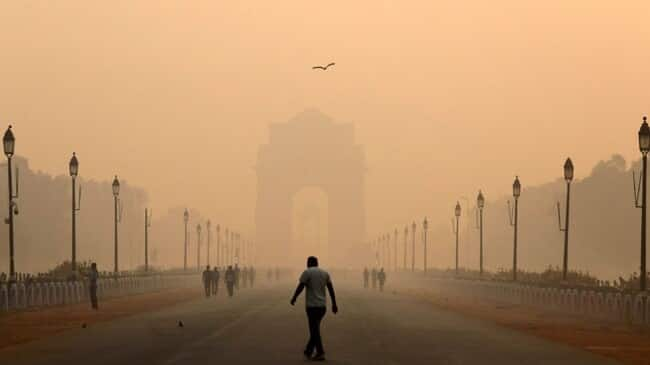
Short-term exposure to air pollution kills 33,000 Indians annually: Report
What's the story
A recent study published in Lancet Planetary Health states that air pollution levels below India's national clean air threshold are responsible for approximately 33,000 deaths annually across ten cities in the country. The research indicates that even sub-standard levels of air pollution contribute to increased daily mortality rates. The study found that a significant number of deaths occurred in cities not typically associated with high air pollution, such as Mumbai, Bengaluru, Kolkata, and Chennai.
Pollution study
PM2.5 exposure linked to increased mortality rates
The study, conducted across ten cities used data on PM2.5 exposure and daily mortality counts between 2008-2019. It found that 7.2% of all deaths (approximately 33,000 each year) in these cities were linked to short-term PM2.5 exposure higher than the World Health Organization's guideline value of 15 micrograms per cubic meter of air. The report revealed that "Every 10 micrograms in every cubic meter of air increase in short-term PM2.5 exposure was associated with a 1.42% increase in daily deaths."
Mortality rates
Delhi, Varanasi record highest air pollution-related deaths
The study was conducted in Ahmedabad, Bengaluru, Chennai, Delhi, Hyderabad, Kolkata, Mumbai, Pune, Shimla and Varanasi. Delhi recorded the highest number of air pollution-related deaths during the study period, with 11.5% or 12,000 deaths each year. Varanasi logged the second highest number of deaths at 10.2%, or around 830 deaths a year. Both these figures were attributable to short-term PM2.5 exposure higher than the WHO guideline value.
Pollution control
Study urges stricter air quality standards in India
The research, conducted by the Sustainable Futures Collaborative, Ashoka University, Centre for Chronic Disease Control, Sweden's Karolinska Institutet, Harvard and Boston Universities among others, is the first multi-city study to assess the relationship between short-term air pollution exposure and deaths in India. The report concludes by emphasizing that "India's national air quality standards should be made more stringent...efforts to control air pollution should be redoubled." It also noted a steep increase in risk of deaths at lower concentrations of PM2.5.